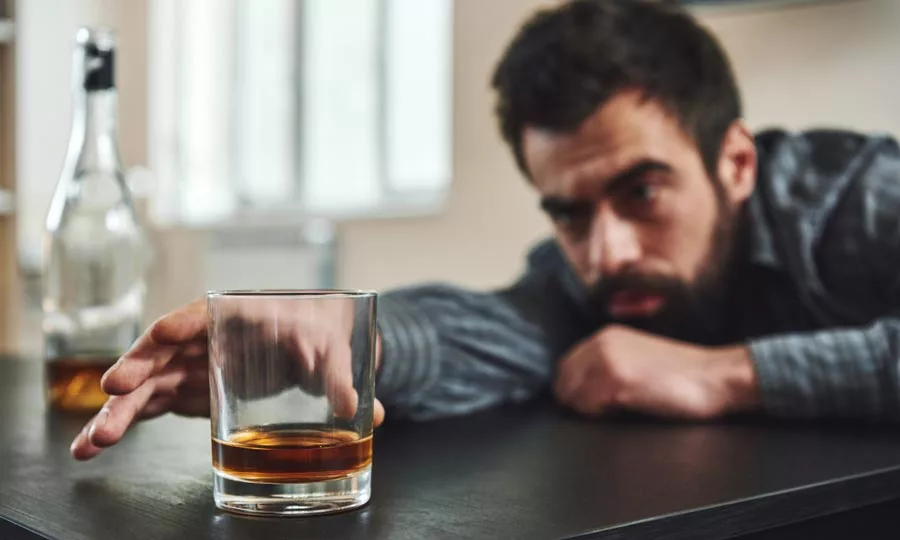Alcohol Rehab Santa Ana
Substance Abuse Treatment and Santa Ana Rehab Centers
Substance abuse and addiction can have a profound impact on those affected by it. The pain and suffering that comes with it can be devastating, while the journey to recovery can feel impossible. However, there is support available to help people take back control of their lives and begin to heal. With an open mind, determination, and a little bit of hope, recovery is possible. It is a process filled with ups and downs, but with the right support system, the future can be full of promise and possibility.
Substance abuse treatment and rehabilitation programs offer a lifeline to those suffering from addiction. With the help of dedicated professionals and a safe, supportive environment, individuals can gain access to the resources needed to make positive lasting changes in their lives.
Keep reading to learn more about substance abuse, our alcohol rehab Santa Ana services, and what South Shores Detox and Recovery can do for you!
What is Drug or Alcohol Addiction?

Drug and alcohol addiction is an insidious illness that affects millions of people across the globe, causing pain, suffering, and disruption to all aspects of life. While it may seem like a never-ending cycle of physical and psychological dependence, with the right support, individuals can break free from the cycle and take their lives back.
Acknowledged by the Substance Abuse and Mental Health Services Administration (SAMHSA) as a complex disease, addiction has far-reaching consequences beyond just the individual; its effects can be seen in families, communities, and society as a whole.
The core of addiction is a brain change by prolonged substance use. With time, the brain begins to associate the substance with pleasure, making it difficult for the person to quit without help. This physical dependence can lead to withdrawal symptoms when stopping the substance, which further complicates breaking free from the cycle of addiction.
The symptoms of addiction are diverse and can vary from person to person. Some of the most common include:
- Inability to control substance use: Despite a person’s best intentions, someone struggling with addiction will find it difficult or even impossible to stop using their substance of choice.
- Tolerance: Addiction changes the way our bodies and minds function, often requiring more of the substance to achieve the same effects over time. This is known as tolerance.
- Withdrawal symptoms: Withdrawal symptoms caused by addiction can range from mild discomfort to much more serious physical and psychological conditions, depending on the type of substance being used and the severity of the individual’s dependency.
- Neglect of responsibilities: A person struggling with addiction often prioritizes their substance use over other responsibilities, leading to a decrease in their overall quality of life. This can mean neglecting work, relationships, and basic health care, to the point where they are no longer able to manage even the most basic aspects of their lives.
- Continuation of substance use despite negative consequences: Despite the harm that the substance is causing in their life, the person may find that they are unable to quit.
- Craving: A person with addiction will have an intense urge to use the substance, known as cravings.
Substance abuse can also have a serious effect on a person’s mental health, inducing mood swings, irritability, and depression. In addition to this, it can cause long-term health problems, with the potential to damage organs such as the liver and heart. In some cases, alcoholism and substance use leading to fatal overdose.
24 Hour Alcohol Rehab Helpline
Who Needs Alcohol Addiction Treatment Services?
Alcohol addiction treatment services are designed to help people with alcohol dependence. This includes those with a physical dependency on alcohol, as well as those who are facing major disruptions in their day-to-day lives due to excessive drinking.
- People who have tried to quit drinking, but failed by themselves.
- People who experience withdrawal symptoms when trying to stop drinking such as tremors, anxiety, or seizures.
- Individuals who keep on drinking despite the resulting harm to their personal or professional life, like relationship issues, job loss, or legal issues.
- People with cravings for alcohol even though they are aware of its negative effects.
- Individuals suffering from health problems due to alcohol use e.g. liver disease, heart disease, or pancreatitis.
Different Types of Addiction Treatment Centers in Orange County

Addiction is a complex disease that requires professional treatment to overcome. In Orange County, there are a range of addiction treatment centers available, each offering a unique approach to recovery. Understanding the different types of addiction treatment centers and the services they provide can help individuals make an informed decision about their care.
Detoxification Treatment Program
Detoxification, also known as “detox,” is the initial step in addiction treatment. It’s an overseen procedure that helps individuals safely withdraw from their chosen substance. Detox typically takes a few days to a week and involves careful monitoring by medical professionals to ensure a safe and comfortable withdrawal process. Medication assisted treatment and detox can be very beneficial.
Residential Treatment Center
Residential treatment centers are designed for those who require an organized and supportive setting to focus on their recovery. These programs usually last from 30-90 days and provide 24/7 support from a healthcare team. Residential treatment centers offer various services, such as therapy, support groups, and recreational activities to help people gain the ability to maintain sobriety after the program.
Intensive Outpatient Treatment Options
Intensive outpatient programs are designed for individuals who need a higher level of support than traditional outpatient programs. These programs involve several hours of therapy and support groups each day, and are ideal for individuals who need additional structure and support to maintain their sobriety.
Outpatient Treatment Programs
Outpatient treatment programs are for those who have finished a detoxification or residential treatment program and need to return to their normal life. These programs consist of weekly therapy sessions and support groups, providing individuals the opportunity to receive care and assistance while still meeting work, family, and other obligations.
Dual Diagnosis Treatment Facility
Dual diagnosis treatment centers are for people who have difficulties with both addiction and mental health issues, such as depression, anxiety, or bipolar disorder. These programs provide integrated care for both conditions, allowing those seeking help to achieve and maintain sobriety while also dealing with their mental health problem.
What to Expect From Alcohol and Drug Rehab Center

Rehab centers provide a safe and organized environment where individuals can battle their addiction and begin the process of living a healthier and more fulfilled life. But what really takes place in an alcohol and drug rehabilitation center? Here’s a glimpse into some of the main components of attending an alcohol or drug treatment program.
Admissions Process
The admissions process is the first step in the rehab experience. During this stage, individuals are subject to an initial evaluation that helps determine their needs and level of care. This can include a physical checkup, assessment of medical and mental well-being, and review of substance use history. Furthermore, the admissions process involves setting objectives for the treatment programs as well as expectations for the individual’s stay in rehabilitation.
Withdrawal Management
If the individual is physically dependent on alcohol or drugs, they may experience withdrawal symptoms when they stop using. Withdrawal management is a critical part of the rehab process and involves close monitoring by medical professionals to ensure the individual’s comfort and safety. This may involve medications to manage symptoms, as well as other supportive therapies.
Individual Therapy Sessions
Individual therapy sessions are a key component of addiction treatment. During these sessions, individuals will work one-on-one with a therapist to explore the underlying causes of their addiction and develop strategies for recovery. These sessions provide a safe and supportive space for individuals to work through their feelings and develop the skills they need to maintain their sobriety after treatment.
Family Therapy
Family therapy is an important type of therapy that involves both the individual and their family. In these sessions, families can work together to comprehend the effect of addiction on their relationships and devise strategies to help the family dynamic. This can be an invaluable part of mending broken bonds and cultivating a healthier, more resilient family unit.
Group Therapy
Group therapy is an essential part of addiction treatment. It involves people in recovery coming together in a group setting and sharing their experiences, challenges, and successes with each other. Groups provide a supportive, non-judgmental atmosphere, helping individuals feel less alone on their recovery journey.
Mental Health Services
Addiction and mental health conditions often co-occur, and many rehab centers offer mental health services to address these conditions. This may include therapy, medication management, and other treatments to help individuals manage their mental health and maintain their recovery.
Health Care Services
Addiction rehabs provide a variety of healthcare services to aid individuals in their recovery from substance abuse. These can include the presence of trained nurses, medication management, psychiatric support, and physical check-ups. Nurses will monitor progress and provide medical care, while psychiatrists can prescribe medications to help manage symptoms. Regular physical check-ups are important for identifying and tackling any underlying health issues.
Alcoholics Anonymous Meetings

Alcoholics Anonymous (AA) is a well-known support group that provides guidance and support to those recovering from alcoholism. AA meetings are offered in many rehab centers as part of their treatment program, which gives individuals the opportunity to build strong relationships with other people who have experienced similar struggles.
The meetings allow participants to get advice, receive encouragement, and find comfort through shared experiences. In addition, AA meetings can serve as a continued source of support after someone leaves the rehab center, offering a sense of community and accountability that can help them stay on track with their sobriety goals.
Life Skills Development
Drug rehab is more than just treating substance abuse – it’s about equipping individuals with the life skills needed to support sobriety, and to help them build a successful and fulfilling life. During their treatment, those in rehabilitation can take part in various programs and activities that promote personal growth and development, such as educational workshops, adventure therapy, and stress management techniques.
We Accept Most Major Insurance Providers – Call Now!
Does Insurance Cover An Alcohol Treatment Center or Drug Rehab?
Overcoming an addiction can be a tough and often lengthy process, but with the right help and guidance it is possible to break the cycle and move towards full recovery. One of the common questions asked by those looking for treatment for themselves or a loved one is whether health insurance will cover the costs of rehab.
Well, the short answer is “it depends.” Every insurance policy is different, and coverage for addiction treatment can vary greatly. But there are some steps you can take to navigate the process and find the best options for you or your loved one.
First, it’s important to understand that almost all insurance policies do offer some coverage for addiction treatment. Under The Affordable Care Act (ACA), all insurance plans to cover behavioral health treatment, which includes substance abuse treatment. However, this coverage can vary depending on the type of plan you have, the state you live in, and where you are seeking alcohol, drug abuse, or mental health treatment.
When considering whether private health insurance covers addiction treatment, the initial step should be to examine the policy documents and speak directly to an insurance representative. This will help to provide a clearer understanding of which type of therapy is covered and any extra costs that may need to be taken into consideration. With this knowledge, individuals are able to make an informed decision when selecting a rehab program that best meets their needs.
While insurance plans often provide coverage for addiction treatment, this typically comes with some out-of-pocket costs such as copays or deductibles. It is important to be aware of these financial obligations so you can plan ahead and make sure you are adequately prepared for any additional costs that may arise.
Other Payment Options
Even if your health insurance doesn’t fully cover the costs of addiction treatment, there are still other options to consider. Sliding scale fees, scholarships and local non-profits can provide assistance to those in need and make sure that everyone can access the help they require. This means that no matter what challenges you may face, recovery isn’t out of reach for yourself or a loved one.
Can a Person Find Recovery Without Drug or Alcohol Rehab?

Everyone’s journey toward addiction recovery is different. It may be possible for some to achieve recovery without formal treatment, but this can be a difficult and demanding process that comes with its own set of challenges.
Success depends on several factors, including the severity of the addiction, the presence of underlying mental health disorders, the person’s support system, and their access to resources.
Still, Professional Help is Always Best
While it can be possible in some cases to achieve sobriety without professional addiction treatment, it is important to understand that quitting drugs or alcohol “cold turkey” can be an extremely difficult and dangerous process. Professional help and guidance from an experienced team of medical professionals, therapists, and recovery specialists can provide the support system necessary for a successful and lasting recovery from substance use disorders or mental health disorders.
For those struggling with addiction, a professional rehab facility can provide the necessary support and structure needed to achieve and maintain sobriety. Experienced healthcare professionals create specialized treatment plans to meet the unique needs of each individual patient, allowing them to safely take the steps required for successful recovery. In addition, rehabilitation centers provide a secure environment, free from the distractions or triggers of everyday life, allowing individuals to focus their energy on achieving and maintaining sobriety.
The Evidence Based Benefits of Sober Support Systems
Professional treatment for substance use and mental health disorders is just as important as it is for any other medical condition. At our facility, individuals benefit from a comprehensive care program designed to target both the physical and psychological aspects of their disorder. Through this individualized care plan, we ensure the best chance of success by providing the necessary tools, resources, and support to help patients safely move forward in their journey toward recovery.
24 Hour Alcohol Help – Reach out Now!
Find Help with Recovery in Santa Ana, CA Now
South Shores Detox and Recovery in Santa Ana, CA is dedicated to helping individuals experiencing addiction find success in their recovery journey. Our team of specialized professionals creates individualized care plans that target the physical, emotional, and psychological factors associated with addiction. We provide ongoing support throughout the process and arm people with the necessary tools for a safe and lasting recovery.
At South Shores Detox and Recovery, we don’t want you to face the battle of addiction alone. We are here with you every step of the way, equipping you with the essential tools, support, and treatment needed to take control of your life and end substance use disorder.
If you’re ready to start your recovery today, contact South Shores Detox and Recovery in Santa Ana now – it’s time to begin living a healthier life full of joy and meaning.
All phone calls to our facility are completely confidential, so please reach out in confidence and get options now!
related pages
- Benzodiazepine Detox
- Opiate And Opioid Detox
- Suboxone Detox
- Behavioral And CBT Therapy
- Dual Diagnosis Disorders
- Mental Health Treatment
- Depression And Mood Disorders
- Alcohol Detox
- Drug Detox Programs
- Addiction Treatment Program
- Mental Health Therapies
- Drug Rehab Orange County
- Drug Rehab Santa Ana
- Couples Rehab Orange County
- Alcohol Rehab Orange County
- Health Net Rehab Center
- Fentanyl Detox
- Dual Diagnosis Treatment Orange County
- Drug Rehab that Accepts TRICARE
- TRICARE Alcohol Rehab
- Alcohol Rehab Santa Ana
- Crack Detox
- Alcohol Detox Orange County
- Heroin Detox
- Medication Assisted Treatment Orange County
- Orange County Drug Detox
